*/
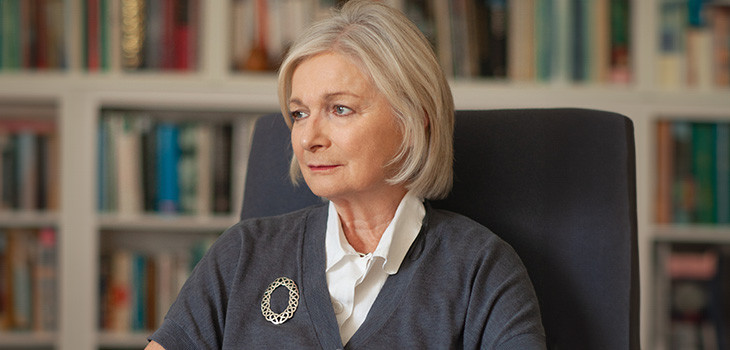
I cannot remember a time when I did not read. The actual sensation, whatever the content, is very important to me. To my mother’s disappointment, as soon as I learnt to read I did not want to be read aloud to – and to this day I cannot stand audio books.
I discovered The Lives of the Young Composers in my school library when I was about six and read them over and over and over. I cannot think why (see my answer on music below!). I still know the first two pages of The Young Beethoven off by heart. I graduated to all the children’s classics, and then on to teenage angst like I Capture the Castle when I was about 14. I wallowed in misery through Grahame Greene when I was at university.
I now read all the time – anything available, from the back of the cereal packet to Dostoyevsky. I am panic stricken if I am ever somewhere where there is nothing to read. For poetry, it is Gerard Manley Hopkins and George Herbert, both of whom reduce me to tears. I reread a great deal and I am always surprised when people think this is strange; I cannot see the difference between rereading a book (odd) and relistening to music (normal).
I was brought up in a very bookish, aesthetically aware but silent house and my regret now is that I have ill-informed and random musical tastes. Despite my best efforts, I have only ever really been reached emotionally by Gregorian chants and Edith Piaf. I am not proud of it. But I do like lyrics which, once heard, I retain such that I can still recall them years later.
Films: The Third Man; Schindler’s List’. Paintings: anything by Fernand Leger; Raeburn’s ‘The Skating Minister’; Chardin’s still lives; Vermeer’s interiors (especially the tiled floors); Gwen John; Winifred Nicholson. These all just came to mind; there are so many others which, once seen, linger for ever in the hinterland and subliminally change the way I see things.
The grey landscapes of Norfolk where I grew up remain in my blood. My father always said Norfolk started at Liverpool Street Station and that is true for me; I get a lump in my throat as I approach it. Bryher in the Scilly Islands where my husband and I return most years, and which truly feels as isolated as it is ever possible to be in the internet age. Of course the Temple, where I have spent my working life, with its strong feeling of history. When I turn off Fleet Street at night and the gate at the top of Middle Temple Lane closes behind me, I feel I am home in every sense of the word.
My essential for a mid-trial stayover is a small beanbag rabbit, bought for me by my husband 30 years ago and who has slept with me ever since. (The rabbit, though my husband has too.)
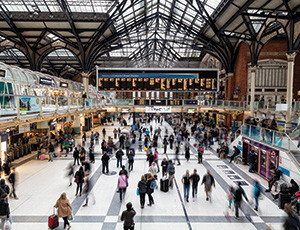
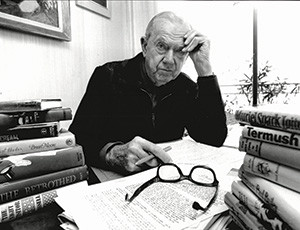
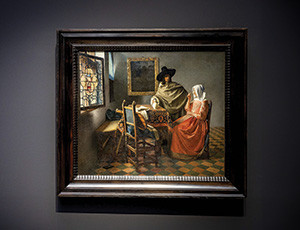
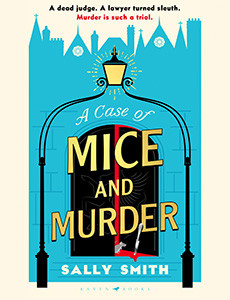

I cannot remember a time when I did not read. The actual sensation, whatever the content, is very important to me. To my mother’s disappointment, as soon as I learnt to read I did not want to be read aloud to – and to this day I cannot stand audio books.
I discovered The Lives of the Young Composers in my school library when I was about six and read them over and over and over. I cannot think why (see my answer on music below!). I still know the first two pages of The Young Beethoven off by heart. I graduated to all the children’s classics, and then on to teenage angst like I Capture the Castle when I was about 14. I wallowed in misery through Grahame Greene when I was at university.
I now read all the time – anything available, from the back of the cereal packet to Dostoyevsky. I am panic stricken if I am ever somewhere where there is nothing to read. For poetry, it is Gerard Manley Hopkins and George Herbert, both of whom reduce me to tears. I reread a great deal and I am always surprised when people think this is strange; I cannot see the difference between rereading a book (odd) and relistening to music (normal).
I was brought up in a very bookish, aesthetically aware but silent house and my regret now is that I have ill-informed and random musical tastes. Despite my best efforts, I have only ever really been reached emotionally by Gregorian chants and Edith Piaf. I am not proud of it. But I do like lyrics which, once heard, I retain such that I can still recall them years later.
Films: The Third Man; Schindler’s List’. Paintings: anything by Fernand Leger; Raeburn’s ‘The Skating Minister’; Chardin’s still lives; Vermeer’s interiors (especially the tiled floors); Gwen John; Winifred Nicholson. These all just came to mind; there are so many others which, once seen, linger for ever in the hinterland and subliminally change the way I see things.
The grey landscapes of Norfolk where I grew up remain in my blood. My father always said Norfolk started at Liverpool Street Station and that is true for me; I get a lump in my throat as I approach it. Bryher in the Scilly Islands where my husband and I return most years, and which truly feels as isolated as it is ever possible to be in the internet age. Of course the Temple, where I have spent my working life, with its strong feeling of history. When I turn off Fleet Street at night and the gate at the top of Middle Temple Lane closes behind me, I feel I am home in every sense of the word.
My essential for a mid-trial stayover is a small beanbag rabbit, bought for me by my husband 30 years ago and who has slept with me ever since. (The rabbit, though my husband has too.)






Now is the time to tackle inappropriate behaviour at the Bar as well as extend our reach and collaboration with organisations and individuals at home and abroad
A comparison – Dan Monaghan, Head of DWF Chambers, invites two viewpoints
And if not, why not? asks Louise Crush of Westgate Wealth Management
Marie Law, Head of Toxicology at AlphaBiolabs, discusses the many benefits of oral fluid drug testing for child welfare and protection matters
To mark International Women’s Day, Louise Crush of Westgate Wealth Management looks at how financial planning can help bridge the gap
Casey Randall of AlphaBiolabs answers some of the most common questions regarding relationship DNA testing for court
Maria Scotland and Niamh Wilkie report from the Bar Council’s 2024 visit to the United Arab Emirates exploring practice development opportunities for the England and Wales family Bar
Marking Neurodiversity Week 2025, an anonymous barrister shares the revelations and emotions from a mid-career diagnosis with a view to encouraging others to find out more
David Wurtzel analyses the outcome of the 2024 silk competition and how it compares with previous years, revealing some striking trends and home truths for the profession
Save for some high-flyers and those who can become commercial arbitrators, it is generally a question of all or nothing but that does not mean moving from hero to zero, says Andrew Hillier